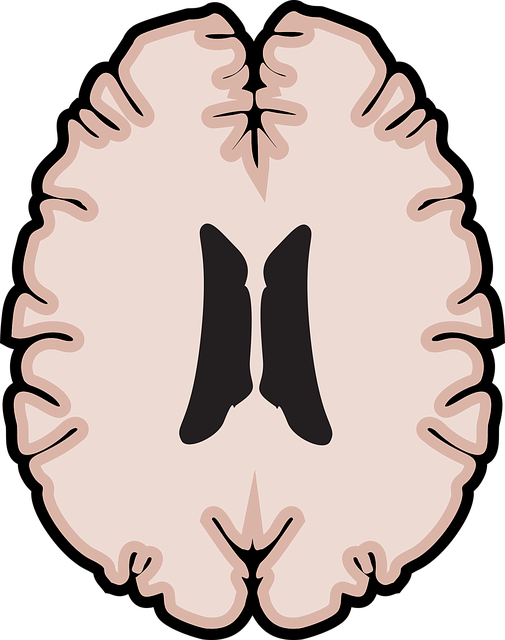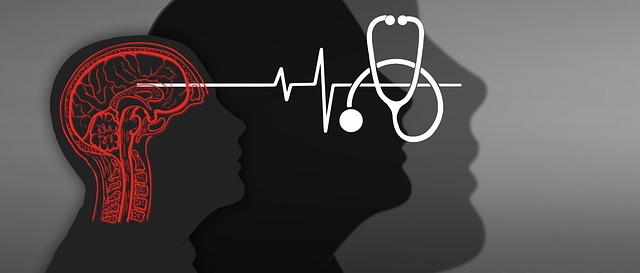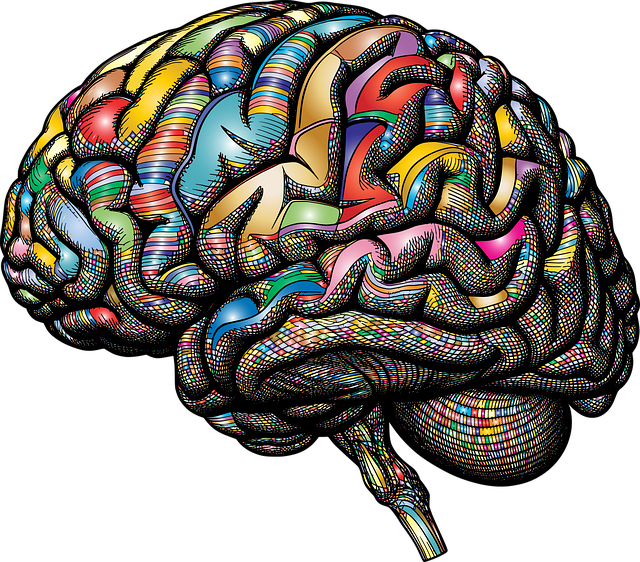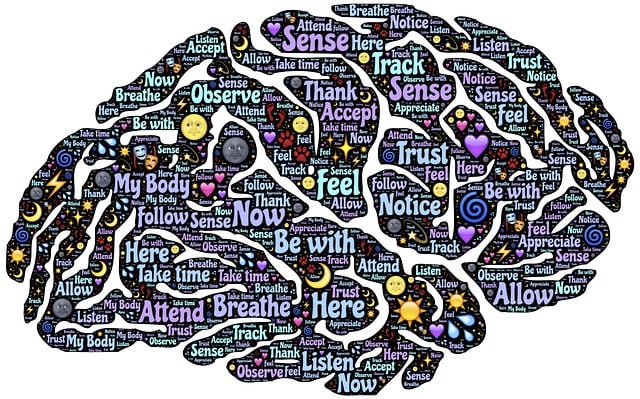Greenwood Village Geriatrics Therapy focuses on Emotional Intelligence (EQ) as a core component of wellness for older adults, combining self-awareness exercises, empathy building, and Mind Over Matter principles. This holistic approach equips individuals with inner resilience, fosters healthier relationships, and enhances overall mental well-being through practical strategies like active listening, mindfulness meditation, and perspective-taking.
Emotional intelligence (EI) is a powerful tool for navigating life’s challenges and fostering meaningful connections. The Greenwood Village Geriatrics Therapy Approach offers a unique perspective on building EI, emphasizing its role in enhancing overall well-being, especially among the elderly. This article explores four key areas: understanding EI, cultivating self-awareness, enhancing empathy, and providing practical strategies for daily application. By integrating these concepts, individuals can improve their emotional resilience and relationships, akin to the transformative power of Greenwood Village Geriatrics Therapy.
- Understanding Emotional Intelligence: The Greenwood Village Geriatrics Therapy Approach
- Unlocking Self-Awareness: A Cornerstone of Emotional Intelligence Development
- Enhancing Empathy: Connecting with Others Through Emotional Intelligence
- Practical Strategies for Daily Application: Cultivating Emotional Intelligence in Everyday Life
Understanding Emotional Intelligence: The Greenwood Village Geriatrics Therapy Approach

Emotional Intelligence (EQ) is a crucial aspect of overall wellness, and the Greenwood Village Geriatrics Therapy Approach takes a holistic view in its understanding and development. This therapeutic method recognizes that emotional healing processes are integral to mental wellness, especially among older adults. By focusing on EQ, the approach aims to strengthen individuals’ inner strength development, enabling them to navigate life’s challenges with resilience.
The Greenwood Village Geriatrics Therapy uses various techniques tailored to enhance self-awareness, empathy, and effective communication—key components of EQ. Through these methods, patients learn to recognize and manage their emotions, fostering healthier relationships and improved quality of life. By integrating emotional intelligence into geriatric care, the approach not only addresses mental health concerns but also promotes a deeper sense of well-being and independence in older adults.
Unlocking Self-Awareness: A Cornerstone of Emotional Intelligence Development

In the realm of emotional intelligence building, unlocking self-awareness stands as a cornerstone for personal growth and effective communication. This journey begins with introspectiveness—a mindful exploration of one’s thoughts, emotions, and behaviors. Greenwood Village Geriatrics Therapy emphasizes that recognizing and understanding our internal world is the first step towards developing empathy and managing relationships. By fostering self-awareness, individuals can identify triggers, gain insights into their emotional responses, and make conscious choices to navigate challenging situations with resilience.
Empathy building strategies often complement this process by encouraging individuals to step outside themselves and perceive things from different perspectives. Mind Over Matter principles, integrated into these therapies, help in reshaping thoughts and beliefs about emotions, promoting a healthier mental illness stigma reduction effort. This holistic approach enables individuals to build stronger connections with others, fostering an environment of understanding and support, whether it’s within the confines of geriatric therapy or in broader social interactions.
Enhancing Empathy: Connecting with Others Through Emotional Intelligence

Empathy is a cornerstone of emotional intelligence that plays a pivotal role in fostering meaningful connections with others. By enhancing this skill, individuals can navigate complex social interactions more effectively, leading to improved relationships and overall well-being. Greenwood Village Geriatrics Therapy emphasizes the importance of empathy in their approach to care, recognizing its potential to transform lives. Therapists skilled in emotional intelligence help clients recognize and understand their own emotions as well as those of others, creating a safe space for expression and understanding.
This process extends beyond mere conversation; it involves active listening, nonverbal cues, and the ability to reflect on another’s perspective. In the context of mental health, particularly when addressing issues like anxiety or managing risk through comprehensive Risk Management Planning for Mental Health Professionals, empathy serves as a healing process. It allows professionals to connect with clients on a deeper level, tailoring treatments and support to meet individual needs effectively, ultimately contributing to enhanced Anxiety Relief.
Practical Strategies for Daily Application: Cultivating Emotional Intelligence in Everyday Life

Incorporating emotional intelligence into daily life can feel daunting, but it starts with small, manageable steps. At Greenwood Village Geriatrics Therapy, we advocate for practical strategies that empower individuals to better understand and manage their emotions, as well as those around them. One powerful tool is empathy building strategies, which encourage active listening and perspective-taking. By truly hearing and understanding others’ feelings, you can foster deeper connections and strengthen relationships.
Additionally, practices like mindfulness meditation have been shown to enhance emotional intelligence by promoting present-moment awareness. Taking a few minutes each day to focus on your breath or engage in a guided meditation can help calm the mind, improve self-regulation, and increase empathy. These simple yet effective techniques are accessible to everyone and can dramatically impact overall well-being.
Emotional intelligence, as demonstrated by the Greenwood Village Geriatrics Therapy approach, is a powerful tool for enhancing our interactions and overall well-being. By understanding and managing our emotions, we can unlock self-awareness, foster empathy, and improve relationships. The practical strategies outlined in this article provide a roadmap for integrating emotional intelligence into daily life, enabling folks to navigate social situations with greater ease and build stronger connections.














